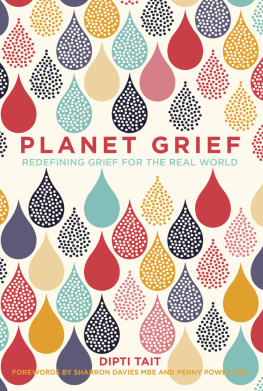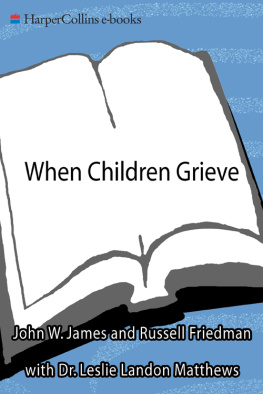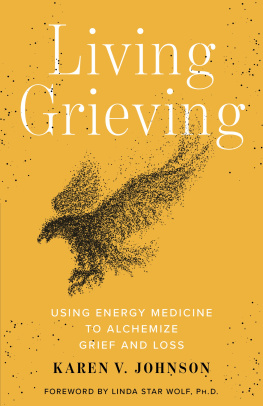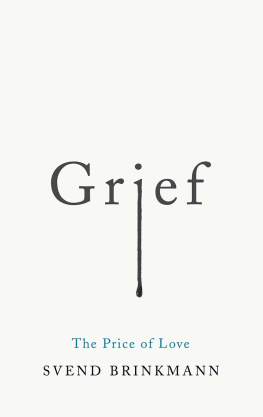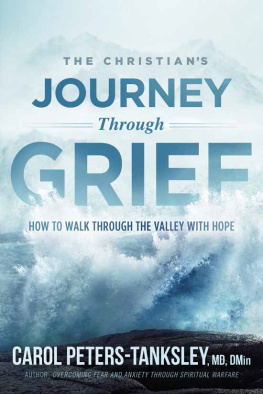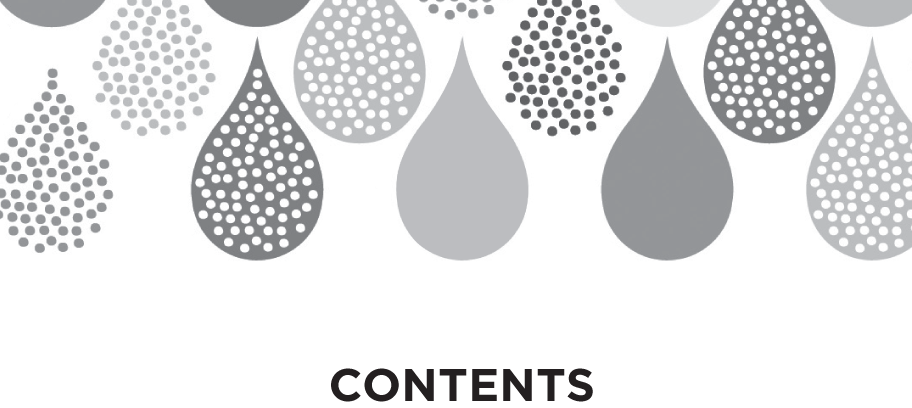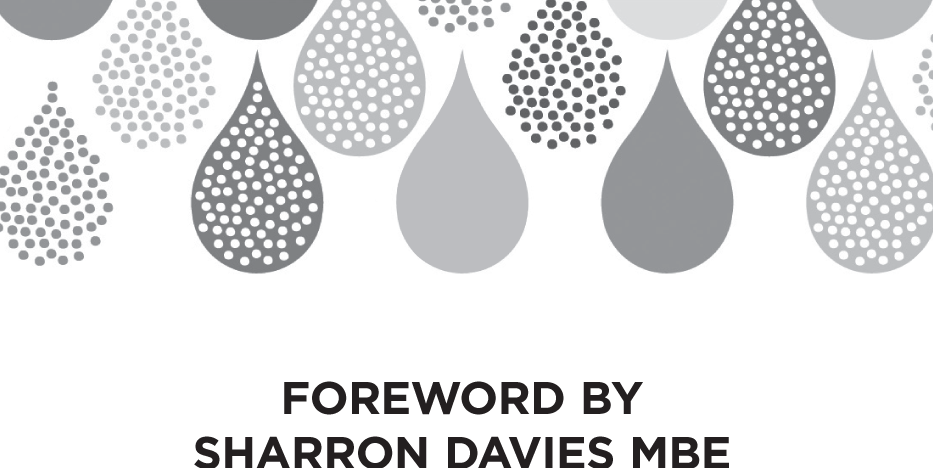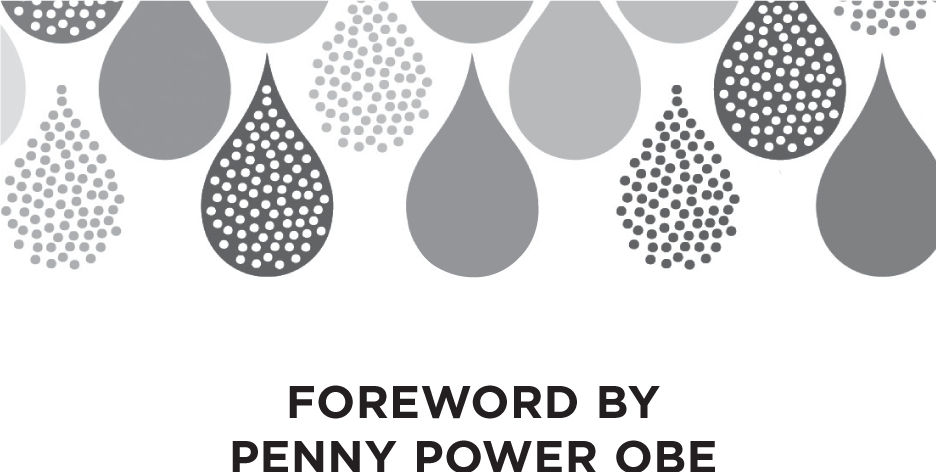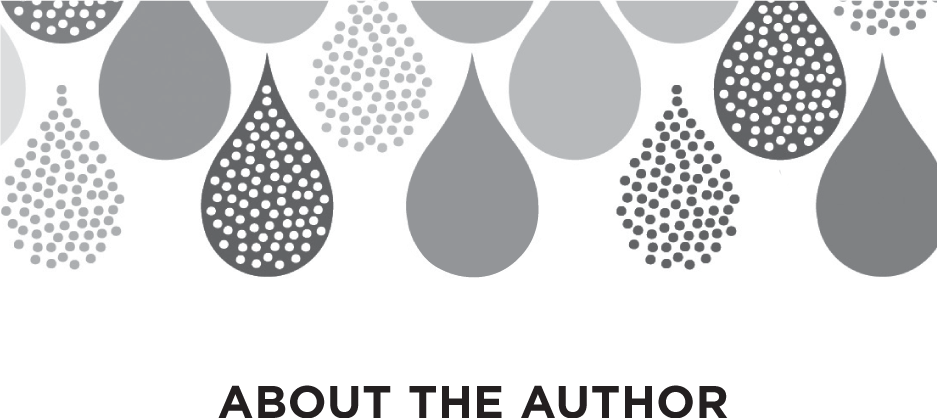Contents
Guide
PLANET GRIEF
Flint Books champions diversity of ideas and viewpoints and publishes books that spark conversations on a range of topics. However, all views, thoughts and opinions expressed in this book are the authors own and are not necessarily representative of the Publishers. All the material in this book is set out in good faith for general guidance; however, this book is not intended to offer or replace expert medical or psychiatric advice. It is not intended to diagnose, treat or act as a substitute for professional medical advice. In the case of trauma and mental health concerns, professional advice and help should always be sought.
First published 2021
FLINT is an imprint of The History Press
97 St Georges Place, Cheltenham,
Gloucestershire, GL50 3QB
www.flintbooks.co.uk
Dipti Tait 2021
The right of Dipti Tait to be identified as the Author of this work has been asserted in accordance with the Copyright, Designs and Patents Act 1988.
All rights reserved. No part of this book may be reprinted or reproduced or utilised in any form or by any electronic, mechanical or other means, now known or hereafter invented, including photocopying and recording, or in any information storage or retrieval system, without the permission in writing from the Publishers.
British Library Cataloguing in Publication Data.
A catalogue record for this book is available from the British Library.
ISBN 978 0 7509 9914 4
Typesetting and origination by The History Press
Printed and bound in Great Britain by TJ Books Limited, Padstow, Cornwall.
eBook converted by Geethik Technologies

Not everyone can have a good friend like Dipti to listen to us when we need it, which we certainly all do from time to time, so its great shes put some wise words into a book.
Grief is often our companion and through working with Dipti Ive learnt you can make it something you get used to hanging out with. Wishing something wasnt so wont change what has already happened, sadly. We can only learn from mistakes, build support structures and become resilient. When I lost my mum, it was about learning to be grateful for the years I had and knowing there will be days when Im more aware of the hole she leaves behind. Im not sure that time repairs a broken heart, but time certainly enables us to live with our grief, whatever form it takes. Ive always been a glass-half-full kind of person, but occasionally every one of us gets lost in a dark place. Sometimes we dont even realise we are grieving because we dont associate what weve lost with life-changing loss, but in reality our lives take different directions every day, acquiring new things and losing others. Its good to have Diptis guidance on how we deal with the flux of life as best we can, particularly when we forget that the sun will always come up on another fresh day.
Sharron Davies MBE
June 2021
When we hear words such as vulnerability, self-esteem or confidence human emotions that we all struggle with at some point in our lives we all understand what they mean. We can relate to the words in our own way. These words might even flip your mind to a moment, a person, a need they might even make you think of an expert who is defined by their wisdom.
This book is about grief, about Planet Grief, about all the ways that we grieve throughout our lives on Earth; after all, grief is a beautiful emotion that life gives us. So why is it that when we are confronted with the word grief, and we think of our relationship with it, many of us want to run in the opposite direction? We think of one thing someone we loved has died.
Dipti taught me, and will teach you, about the diversity of grief, and that grief is essentially about loss. Loss is a life experience, in its many forms. Once you have read this book, you will change your relationship with loss you will know when you are feeling loss, you will label it as grief, and you will give it the respect it deserves. Those moments when you are adjusting to change, when you feel uncomfortable, perhaps sad, and are required to dig deep inside yourself in order to move forwards you will know that you are grieving, and that process is important to your future. Without grieving, we never find closure; fully accepting what has happened enables us to then find the courage and energy to see the new opportunities in the new space that has been created by what has gone.
I know loss in its many forms: I know the loss of loved ones, I know the loss of hope and I know the loss of a business. I know the loss of children running around my home, I know the loss of my dogs and I know the loss of our family home. I know the void these losses created, and I know the strategy of the stiff upper lip of survival. I also know the damage of failing to grieve in the way that I should have.
We can all find hope, joy and a new energy to fill the space that a loss has created. There are mechanisms we can learn and adopt. Loss builds our resilience, it builds our empathy, and it does build new opportunities. This is the opportunity for you to learn to see the void and learn to understand the space that has opened up for you, and what it will mean for your future. In loss in grief there is transformation.
We should never just put up with the loss, but we should also never be defined by it. We can chart a positive way to find joy again, and enjoy this world we are stepping into. It will transform us, heal us and give us the strategies we need to live with all the inevitable losses we will have, big and small.
With love to you and wishing you courage and joy.
Penny Power OBE
June 2021
In her early twenties, Dipti Tait started her working life at the BBC in London, and while there she found out her father only had months to live. He was diagnosed with leukaemia and died after only fourteen weeks.
Two years later, Dipti discovered she was having a baby and put her career in the media on hold to become a mum, and a year later had another baby. Becoming a full-time mother to two boys under 2, as well as giving up her beloved career in television and radio, and then moving away from her life and roots in London to relocate to the Cotswolds, made her realise that grief took many shapes and forms.
Her mother was soon after diagnosed with terminal cancer and died suddenly. Dipti was going through grief struggles as an only child, suffering with extreme loneliness, as she was also in the middle of a divorce and moving out of her family home with very little support.

